Sophia Giustina Corri
1775-v. 1831
Sophia Giustina Dussek ; Sophia Giustina Moralt.
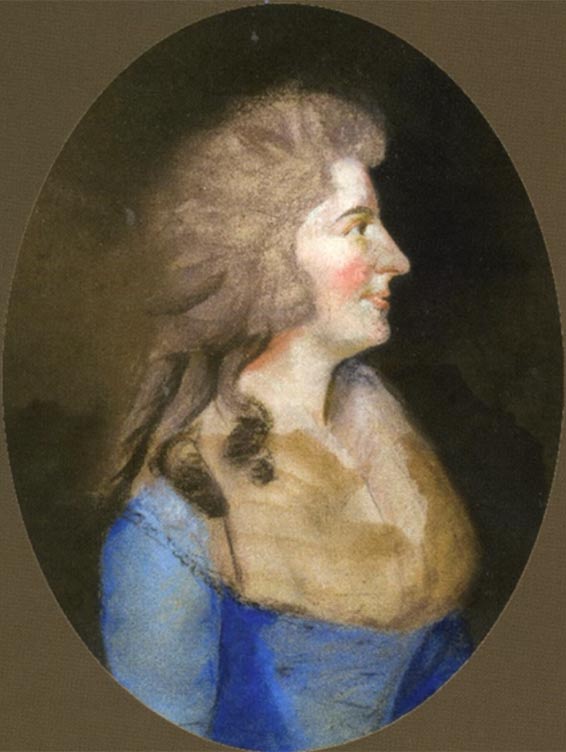
Sophia Giustina Corri est née à Édimbourg, le 1er mai 1775, dans une famille de musiciens.
Son père, Domenico Corri (1746-1825), né à Rome, élève de Porpora, est compositeur, administrateur, éditeur de musique et professeur de chant. Son frère, Natale Corri est compositeur, sa nièce, Fanny Corri (1801-1861) est une soprano renommée.
Après avoir créé un opéra-comique en 1770, au Teatro della Pace à Rome, il est appelé en Écosse pour diriger les concerts de la Musical Society of Edinburgh. Il se fait une bonne renommée de maitre de chant et d’organisateur de concerts. Il ouvre un commerce d’édition musicale.
Ses cinq enfants sont musiciens. Philip Antony Corri (1784-1832), contribue à la création de l’Orchestre philharmonique de Londres, avant d’émigrer à Baltimore où il prend le nom d’Arthur Clifton, Haydn Corri (1785–1860) est chef de chœur, organiste et professeur de piano, Montague reprend l’affaire familiale.
Domenico Corri enseigne le chant et le piano à sa fille Sophia et la produit comme pianiste alors qu’elle est encore très jeune.
Après des difficultés financières et une saisie, en 1780, la maison d’édition est mise au nom du frère aîné, John, qui s’associe en 1783 avec James Sutherland.
Cherchant fortune ailleurs, la famille s’installe à Londres en 1788, Domenico Corri ouvre une nouvelle maison d’édition avec une boutique à Soho. Sa fille prend des leçons avec le violoniste et chanteur Giambattista Cimador, avec le castrat Luigi Marchesi qui se produit régulièrement à Londres, et le ténor Giuseppe Viganoni, qui s’impose à Londres à partir de 1795, après y avoir fait ses débuts en 1781.
Sophia Corri devient une soprano réputée, elle est aussi compositrice. Elle se produit régulièrement aux célèbres Concerts Salomon, notamment en 1791, sous la direction de Joseph Haydn.
On lui prête d’avoir joué un rôle important dans la diffusion des œuvres de Wolfgang Amadeus Mozart en Angleterre. Le fait d’avoir été soliste dans la Création londonienne du Requiem, à Covent Garten, en 1801, ne suffit toutefois pas à soutenir une telle réputation.
Jan Ladislav Dussek (1760-1812), pianiste et compositeur à succès des cours princières, suit l’immigration vers l’Angleterre de la noblesse chassée par la Révolution. Il y rencontre Sophia Corri, se marie avec elle le 31 août 1792, s’associe avec son beau-père Domenico Corri dont l’affaire s’agrandit pour devenir la maison d’édition Corri, Dussek & Co, avec une boutique à Haymarket. Elle édite entre autres un grand nombre de ses propres compositions. Sophia-Corri-Dussek profite des leçons de harpe de son mari, lui-même ayant appris à jouer de cet instrument avec sa mère, Veronika Stebetova Dussek.
Sophia Giustina Corri, Sonate pour harpe no 3, en do mineur, 1. Allegro moderato, 2. Andantino, Rondo, par Masumi Nagasawa.Les Dussek ont une fille unique, Olivia née vers 1799, qui sera également musicienne : pianiste, harpiste, compositrice, professeur, et organiste titulaire, ce qui défraiera la chronique, le cas étant très rare à l’époque pour une femme.
Mais peu avant sa naissance, l’entreprise fait faillite. Domenico Corri est incarcéré à la prison pour dettes, Jan Ladislav Dussek prend la fuite, se réfugie d’abord à Hambourg puis continue sa carrière au service des cours princières, dont à Paris dans la suite du prince Charles Maurice de Talleyrand, à partir de 1807. À sa mort, le 21 mars 1812, il n’aura pas revu sa femme et sa fille. Quant à Sophia Corri, elle se remarie avec l’altiste John Alvis Moralt. Après ce mariage, elle publie ses œuvres sous son propre nom. Elle crée une école de musique à Paddington où le couple réside.
Sophia Giustina Corri, Variations sur un air français, par Floraleda Sacchi, 2013.
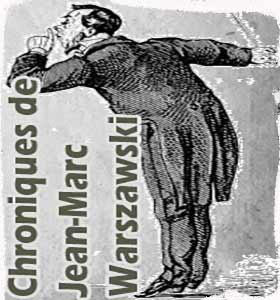
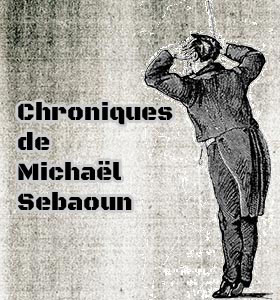
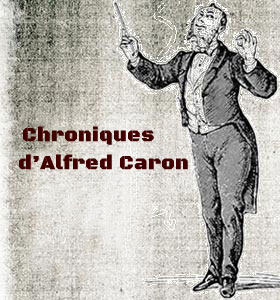
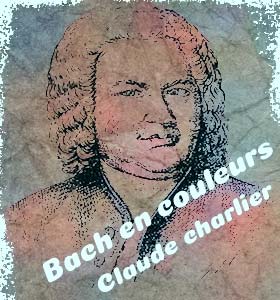
Catalogue partiel des œuvres et arrangements
Sonate pour piano avec flûte ou violon, opus 1.
3 Sonates pour clavecin avec violon, opus 1.
Sonate pour piano.
3 Sonatas, pour harpe, with Scots Airs and Reels for the Adagios & Rondos, opus 2, 1. si bémol majeur, 2. sol majeur, 3. do mineur, 1795.
3 Sonatas, pour harpe, with Scots Airs and Reels for the Adagios & Rondos, opus 2, 1. mi bémol majeur, 2. fa majeur, 3. mi majeur, 1795.
6 Sonatas, pour harpe, 1. do majeur, 2. fa majeur, 3. sol majeur, 4. si bémol majeur, 5. fa majeur, 6. mi majeur (attribuées à Jan Ladislav Dussek).
Three favorite Canzonetts, arranged with an accompaniment for the piano forte or guitar, the words & music ... by Steffano Mandini. The [guitar] accompaniment by Mme Dussek, vers 1799.
Recitative & song, « With verdure clad the fields appear » : in the sacred oratorio of the Creation : as sung at the Theatre Royal Covent Garden by Mrs. Dussek, composed by Dr. Haydn, 1800.
« Love thou maddening Power », arrang'd for the harp, by Madame Dusseck, the words by the late Richd Tickell ... Sung by Mr Kelly, in « Love in a Village », 1801.
The favorite duett, in Love in a village : sung at the Theatre Royal Drury Lane by Mrs. Billington & M. Kelly, composed by M. Kelly ; arrang'd with an accompaniment for the harp by Madame Dusseck, 1802-1803.
A divertimento for the harp with a favorite waltz of Mozart's arranged as a rondo, by Sophia Dussek, 1803-1805.
The favorite Welsh air of Beauty in Tears, with variations for the Harp, 1810.
The new German waltz, adapted as a Rondo, en fa majeur, pour harpe, vers 1810.
The much admired Ballad of Robin Adair, sung ... by Mr Braham ... with new accompaniment for the piano forte or harp by Madame Dussek, 1810.
Three Scotch airs arranged for the harp by S. Dussek. Book 2, 1810.
Italian Air in Nina, Welsh Air, (Wyres Megen) & Spanish Boleros [sic], arranged for the harp, with a flute or violin accompt ad libitum ... Set 9, 1810.
Two favorite airs « Lewie Gordon » and « The rising of the sun », adapted for the harp and pianoforte by S. Dussek, 1812.
A duett for the harp and pianoforte, dedicated to Mrs. Colebrooke, 1812.
The air « Oh Nanny wilt thou gang with me » (composed by T. Carter), and an original rondo composed and arranged for the harp by S. Dussek, 1812.
« Saint Patrick's day », a favorite Irish air, arranged for the harp by S. Dussek. London, 1813.
Pray Goody, the favorite air from the opera of Midas [de O'Hara], pour harpe, 1813.
« The Deserter's meditations » a favorite Irish air, arranged for the harp by S. Dussek, 1813.
Variations on a Tyrolean Air, «The favorite Tyrolesian air with variations for the harp », en mi bémol majeur, 1815.
The Favourite Air of « O cara armonia » (Mozart) & an Introduction & Spanish Military Air, for the Harp, composed, [and] arranged ... by S. Dussek. 3rd Set. 1815.
« In my cottage » with variations for the harp by S. Dussek., 1816.
A favorite waltz, with variations for the harp by S. Dussek, 1816.
« Let us all be merry », a Venetian air, arranged as a duett, for harp and pianoforte by S. Dussek, 1817.
« The maid of Derby» a favorite air, arranged for the harp by S. Dussek, 1819.
Ah! que l'amour « a favorite French air », pour harpe, 1819
A French air with variations, pour harpe, 1820.
The new Tyrolean waltz, arranged for the harp by S. Dussek, 1820.
« Adeste fideles », with variations for the harp, 1821.
« God save the King », with variations for the harp by S. Dussek, 1822.
Introduction and Waltz, pour harpe, 1822.
« Partant pour la Syrie », a French air (composed by Hortense, Duchesse de Saint Leu) arranged for the harp by S. Dussek, 1822.
A Grand March by Mozart [« Dieu d'amour » from « Les Mariages samnites » by A. E. M. Grétry] arranged [with variations] for the harp by S. Dussek, 1822.
Duett for the harp and pianoforte, in which is introduced a favorite air (« Ah vous dirai-je »), with variations and an introduction by S. Dussek, 1823.
The air « We're a'noddin » with an introduction and variations for the harp by S. Dussek, 1823.
Rossini's air « Di piacer » arranged for the harp with an accompaniment for the Piano Forte by S. Dussek, 1823.
The Troubadour, and Darmstadt Waltzes, arranged for two performers on the pianoforte by S. Dussek. London, 1824.
La Chasse: An original rondo, pour harpe, 1824.
« Logie o'Buchan » a Scotch air, arranged for the harp by S. Dussek, 1824.
« The white cockade » (a Scotch air) arranged for the harp by S. Dussek, 1824.
A Garland of Love. A favorite air ... for the harp, 1824.
A march and two waltzes for the pianoforte, 1824.
« The boatie rows » a Scotch air, with variations for the harp, composed by S. Dussek, 1825.
C’est l’amour : A 3rd French air with variations, pour harpe, 1825.
Jäger Chorus [from Weber's « Der Freischutz », arranged for the harp by S. Dussek, 1825.
The air « Scots wha hae », arranged for the harp by S. Dussek, 1826.
Pleyel's German Hymn, arranged with variations for the Harp by S. Dussek, 1826.
Gentille Annette, a favorite French Air («Le Petit chaperon rouge » by F. A. Boieldieu), arranged for the Piano Forte, by S. Dussek, vers 1827.
« Le Petit tambour », a French air with variations for the harp by S. Dussek, 1828.
« The Garland of Love », A favorite air with variations and an introduction for the harp. A favorite air, 1830.
« O thou wert born to please me » (composed by Martini), arranged with variations for the harp by S. Dussek, 1830.
« Charmant ruisseau », a third French air arranged for the harp by S. Dussek, 1830.
« The Campbells are coming », a Scotch air arranged for the harp by S. Dussek, 1930.
Introduction and March, pour harpe.
Variations on In my cottage in a wood, « Titre alternatif In my cotage : a favorite air with variations for the harp », en mi bémol majeur.
Sept (au moin) livres d'airs favoris pour harpe avec parfois acoompagnement de flûte ou de violon : Livre I. 1. Ar hyd y nos, 2. Roslin Castle, 3. Air andantino Brillante ; Livre II. (1815) 1. Ye Banks & Braes, 2. Ah Perdona, 3. Welch air, Megen a gollod ei gards. ; Livre VI. 1. O Mary turn awa that bonnie face o'thine ; 2. She rose and let me in, 3. The rising of the sun. A Welsh air ; Livre VII. (1815) Drink to me only with thine eyes, 2. La mia crudel Toranna, 3. My ain kind Deary O.
Discographie
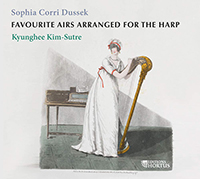 Sophia Corri Dussek, Favourite Airs Arranged for the Harp, Jyunghee Kim-Sutre (harpe). Hortus 2019 (Hortus 178).
Sophia Corri Dussek, Favourite Airs Arranged for the Harp, Jyunghee Kim-Sutre (harpe). Hortus 2019 (Hortus 178).
© Musicologie.org
 À propos - contact | S'abonner au bulletin | Biographies de musiciens | Encyclopédie musicale | Articles et études | La petite bibliothèque | Analyses musicales | Nouveaux livres | Nouveaux disques | Agenda | Petites annonces | Téléchargements | Presse internationale | Colloques & conférences | Collaborations éditoriales | Soutenir musicologie.org.
À propos - contact | S'abonner au bulletin | Biographies de musiciens | Encyclopédie musicale | Articles et études | La petite bibliothèque | Analyses musicales | Nouveaux livres | Nouveaux disques | Agenda | Petites annonces | Téléchargements | Presse internationale | Colloques & conférences | Collaborations éditoriales | Soutenir musicologie.org.
Musicologie.org, 56 rue de la Fédération, 93100 Montreuil, ☎ 06 06 61 73 41.
ISSN 2269-9910.
Samedi 22 Novembre, 2025


